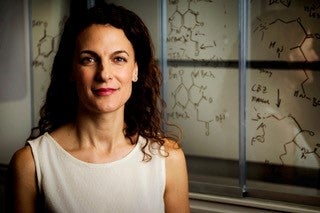Transport phenomena in the intestinal lumen are highly significant to effective oral drug delivery, nutrient absorption, and interactions between microbes and intestinal tissue. Our laboratory is studying the impact of ingested materials, such as lipids in drug delivery systems or food, on transport and overall absorption of orally delivered compounds. Our approach includes mechanistic studies paired with systems-based models of processes key to overall oral absorption, including dissolution and permeation through intestinal membranes. Quantitative mechanistic understanding of transport phenomena in the drug delivery environment is critical to rational design of drug delivery systems enabling oral delivery of agents that may otherwise require injection. One aspect of permeation through the intestinal membrane, transport through mucus, is being investigated in detail. Results to date highlight the dependence of mucosal permeation on physical and chemical properties of penetrating material (drug, particle, microbe) as well as the significance of intestinal lumen contents in altering the mucus barrier. Our findings suggest that mild stimuli, such as those presented by food, can modulate the intestinal barrier, for example to impact oral drug delivery or microbial invasion. Gut-on-chip systems are useful for enabling visualization of and providing insight into interactions of drug delivery systems as well as microbes with the intestinal mucosal barrier.

Rebecca Carrier is a Professor and the Associate Chair for Research in the Department of Chemical Engineering with affiliations in Bioengineering and Biology at Northeastern University. She earned a BS in Chemical Engineering from Rensselaer Polytechnic Institute in 1995, and a Ph.D. in Chemical Engineering from the Massachusetts Institute of Technology in 2000, where she worked as a pioneer in cardiac muscle tissue engineering. After completing her graduate studies, Rebecca worked at Pfizer, Inc., as a Senior Research Scientist in oral controlled release drug delivery. She joined Northeastern in 2003, and built a research program focused on the interaction between biological systems and materials, with specific applications in drug delivery and regenerative medicine. She has had the honor of working on collaborative research projects with multiple industrial partners including Pfizer, Merck, Novartis, Genzyme, and AbbVie, and has received honors including the NSF CAREER award, NU “Outstanding Teacher (2011),” “Faculty Fellow (2014),” and Soren Buus Outstanding Research (2017) Awards for excellence in teaching and research leadership. She was also invited to participate in the National Academy of Engineering Frontiers of Engineering (2016) and Frontiers of Engineering Education (2013) Symposia, served as the Member-At-Large for the Society for Biomaterials from 2018-2019, and was inducted into the American Institute for Medical and Biological Engineering in 2019.

